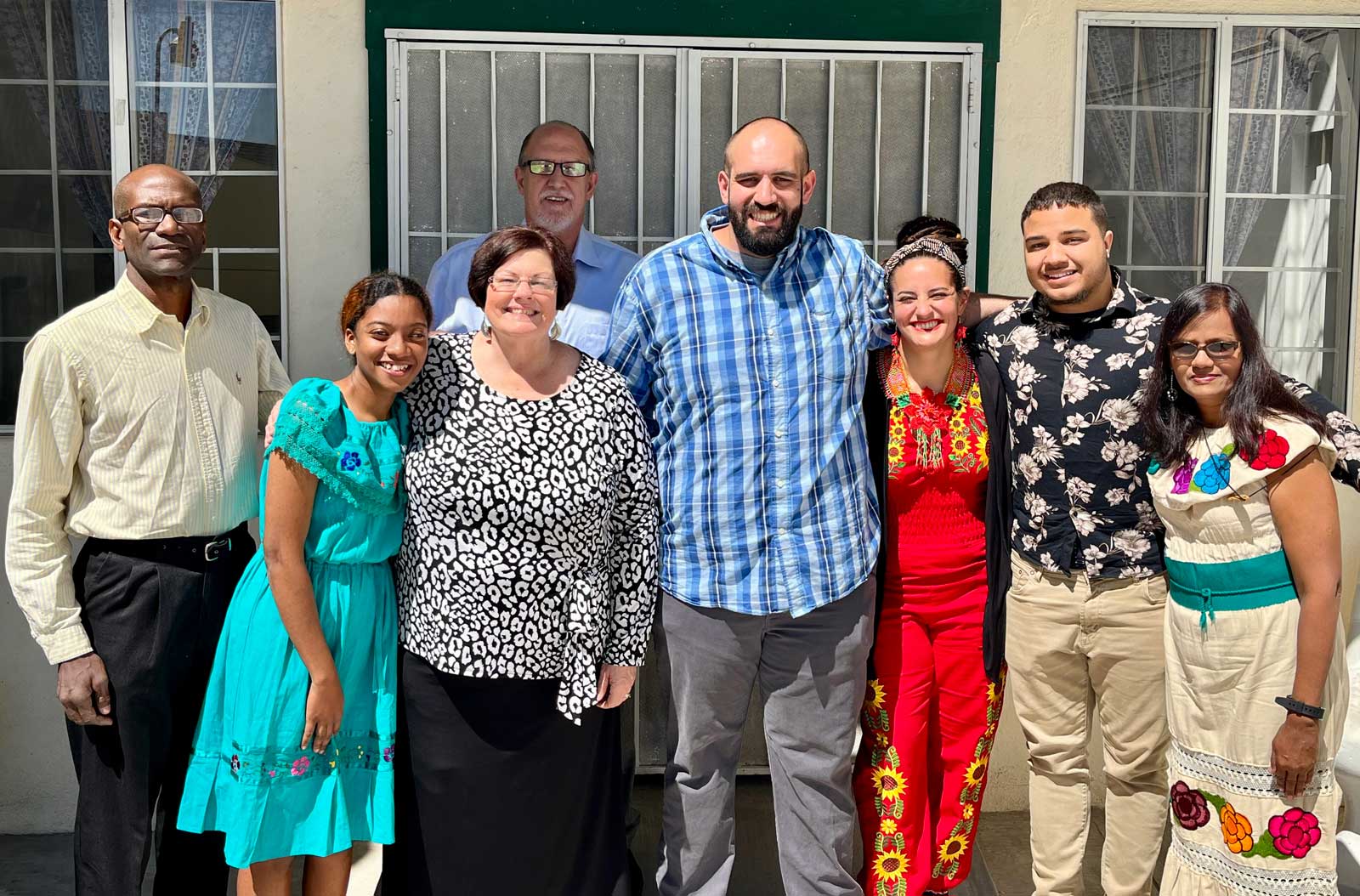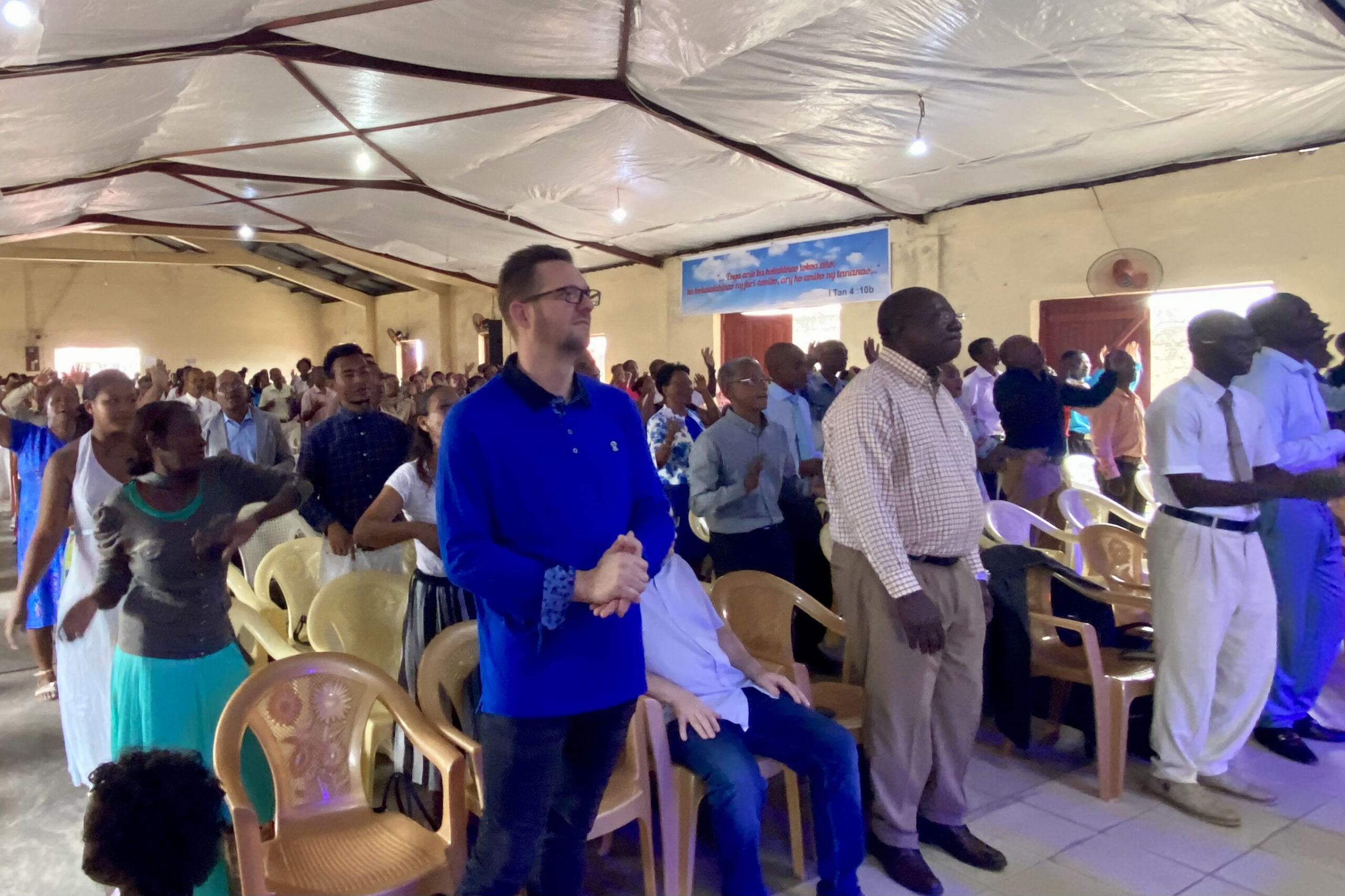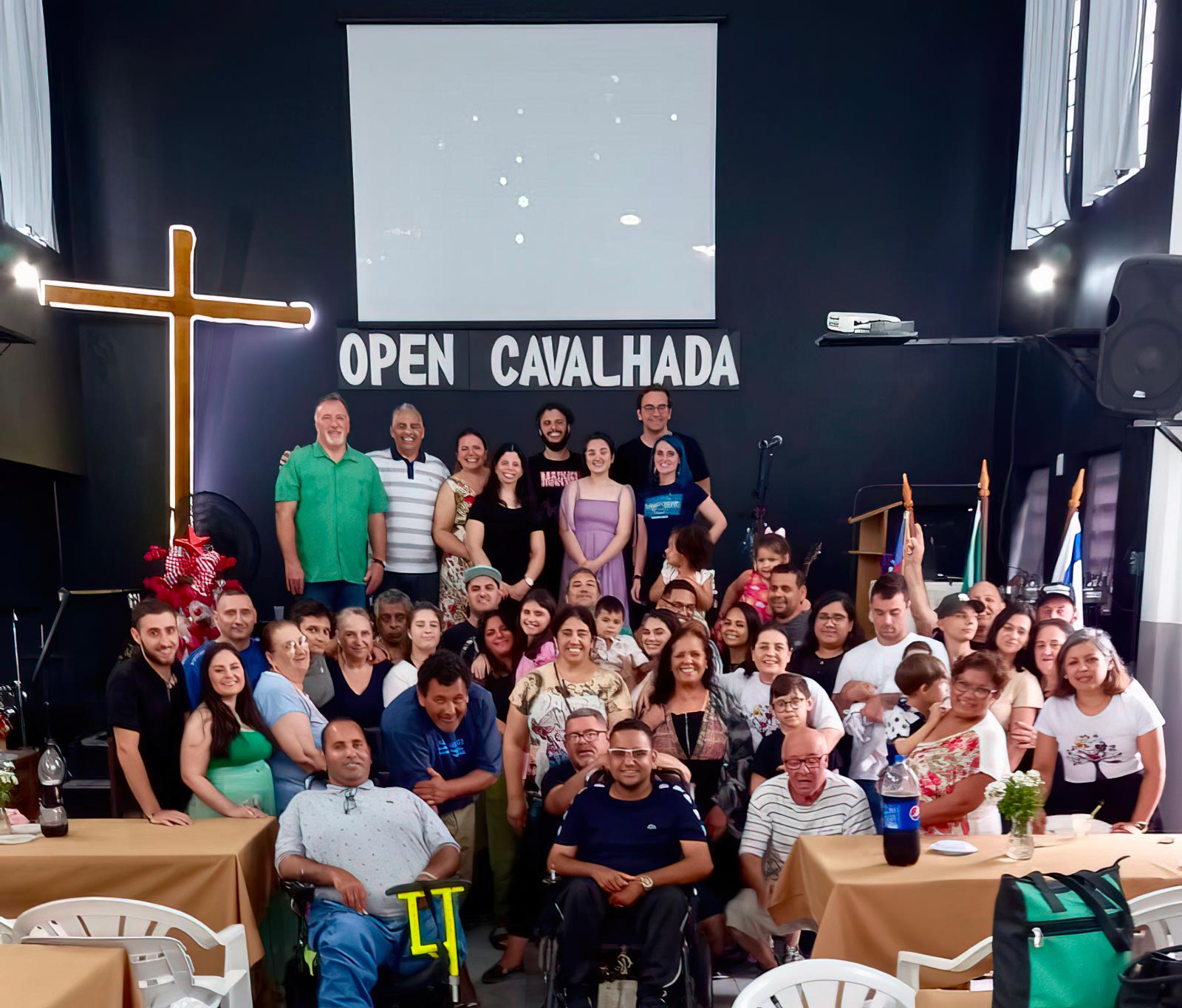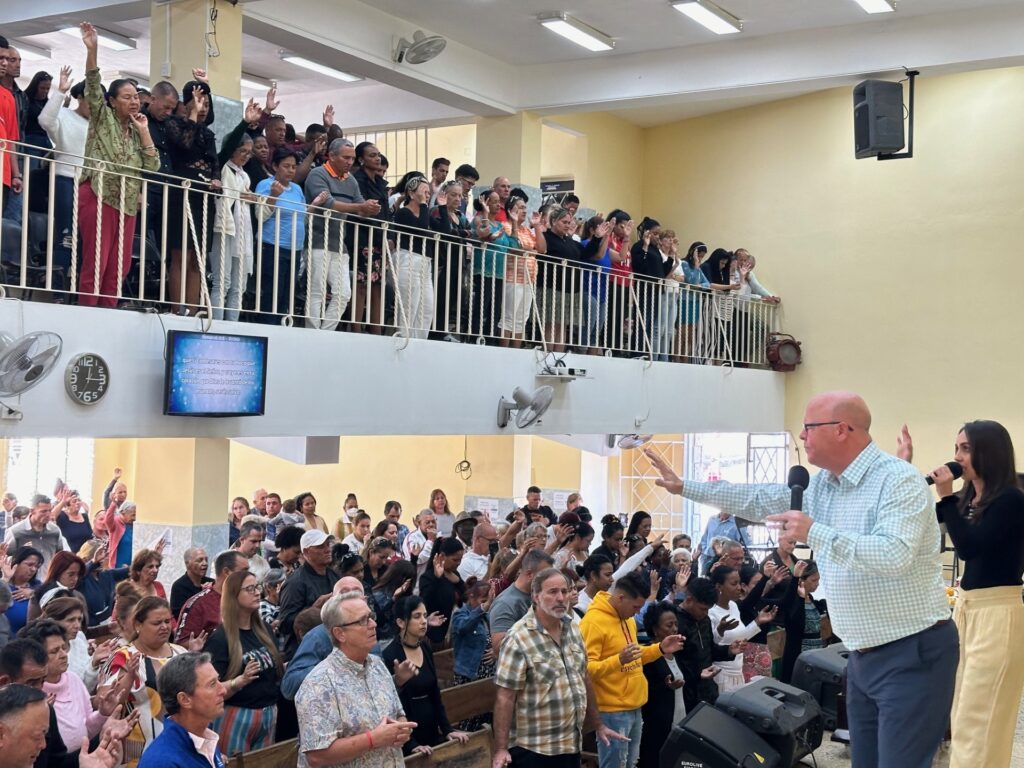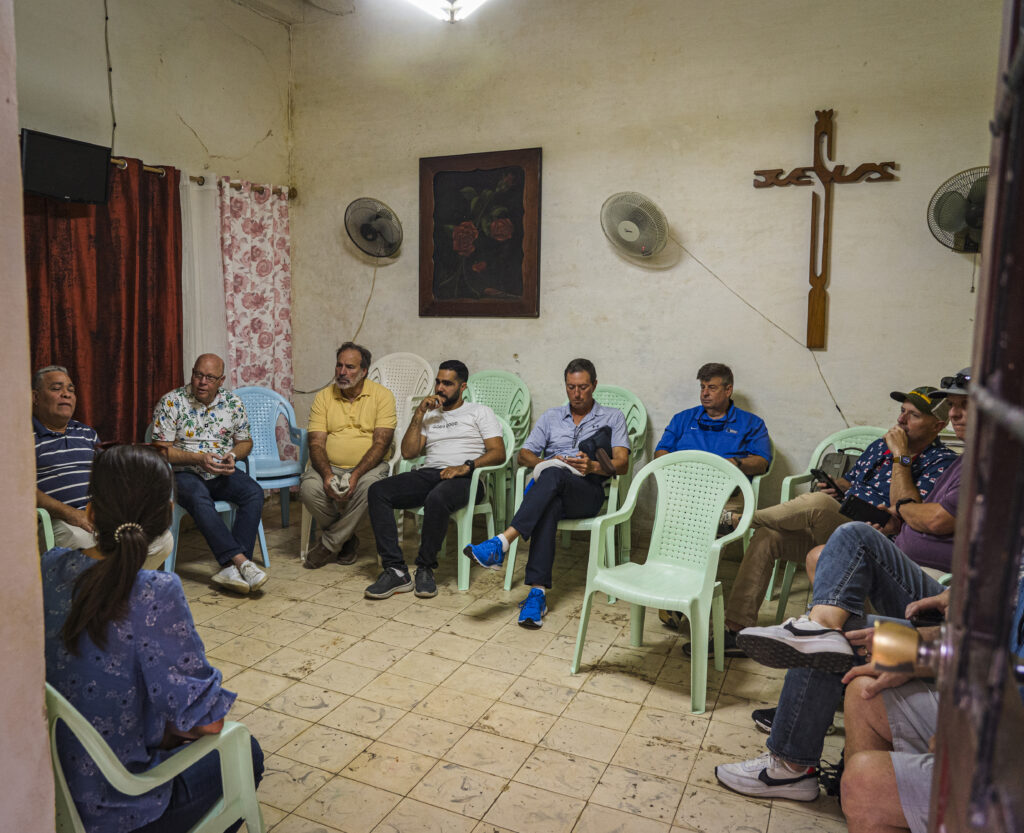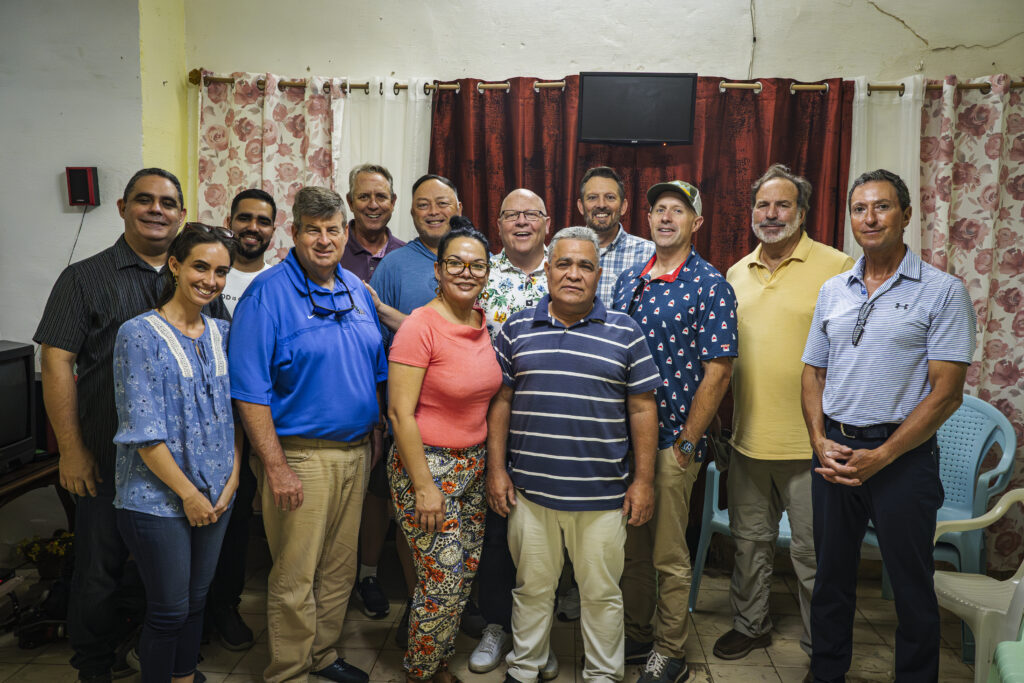Around the World
Our Journey from Pastor to Missionary and Back
Published
3 years agoon
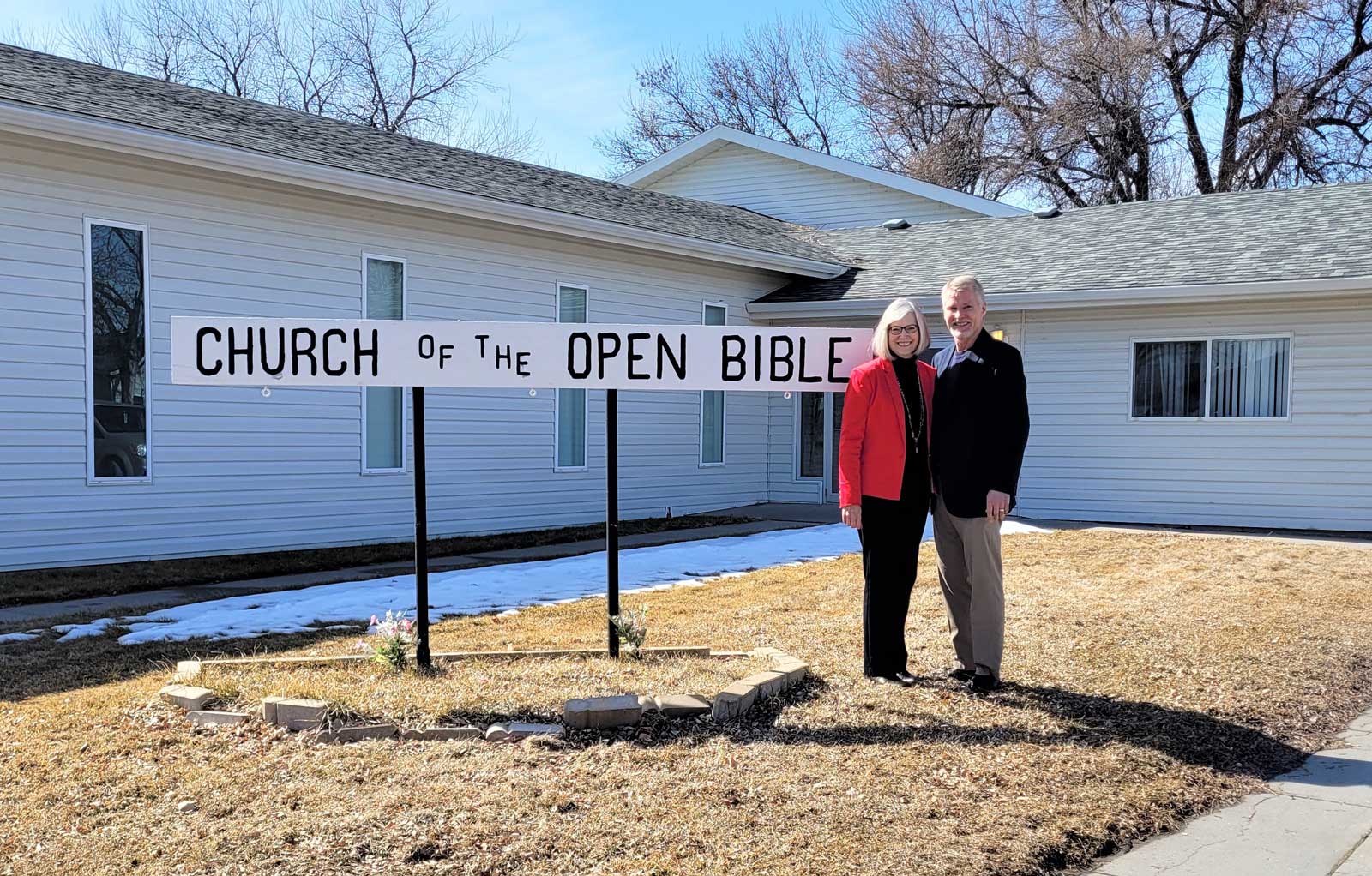
By Mike Juntunen

After thirty years of pastoring in the U.S., God called us to be missionaries to Hungary and Romania, where we were introduced to new cultures that changed the ways we saw ministry. The first thing we noticed was the way the Open Bible churches, both in Hungary and Romania, went out of their way to help us get settled into our new homes. They helped us find an apartment and went with us to get utilities hooked up and all the other legal things that were required to live in their country. We have often thought since then that churches in the United States may be missing out on a ministry opportunity. Could we do a better job of helping new residents to our communities, especially those who are from a different culture and do not speak the language well?
Another thing that impacted us was listening to the stories of the older saints. Both Hungary and Romania are former communist countries. It was sobering to hear the testimonies of those who experienced persecution, imprisonment, and loss of jobs and property because of their faith. It was fascinating to hear these old saints pray. They knew how to enter the throne room of heaven when they prayed.
One cultural difference we noticed was their attitude towards time. Americans tend to be very time conscious and expect things to begin and end on time. Our language classes at the University in Debrecen were filled with students from many countries. It became a joke that the American, German, and Japanese students would arrive to class early while the other European students would usually come late. Although they followed schedules and made appointments, relationships were more important than schedules. As a result of that cultural difference, we learned to be flexible and “go with the flow.” For example, one time we were planning on getting some work done at home when we received a call from a member of the church. They stated that a family was planning a picnic and wanted to meet us, and they wondered if we would be interested in joining them. We said we would like that and asked when the picnic was, and they said, “Now!” So we changed our plans and went to the picnic.

Of course, the main challenge was learning a new language and adapting to new foods and different ways of doing things. It did not take us long to realize that the American way is not always the best way and that just because something is different does not mean it is wrong; it is just different. We grew to enjoy the different food and culture of our new home.
As far as the impact our ministry had upon the people of the countries in which we ministered, we often heard testimonies of how thankful they were that we would leave our home and family to come and minister to them. They especially appreciated that we would make the effort to learn their language and live among them, that their home country became our home also.
What thrilled us the most was seeing the growth of those who studied INSTE. It was exciting to see their hunger to learn the Word of God and to watch them become involved in the work of the church, even taking on leadership roles. One example is Sándor and Margó Pántye. They have been faithful in the Open Bible Church in Debrecen, Hungary, for years. Sándor played the guitar on the worship team, and Margó served in small ways where needed. Since graduating Level One INSTE, however, they have both become more involved in ministering in the Open Bible churches in the villages. Sándor leads worship while Margó has stepped up into a role of teacher.
This only makes us realize, though, that we are still missionaries regardless of which country we are in.
During our thirteen years as missionaries, we have often thought of Jesus’ words: “And everyone who has left houses or brothers or sisters or father or mother or children or lands, for my name’s sake, will receive a hundredfold and will inherit eternal life” (Matthew 19:29, ESV). This is definitely true for us because we have developed many, many close friendships that will last forever.
Now that we have moved back to the U.S., how has the transition been for us and how has our ministry been affected by our experiences overseas? There has been a little “culture shock” upon returning to the U.S., especially in the grocery stores when we see the aisles filled with so many options. In fact, sometimes the number of choices we have can be overwhelming. Also, America is not the same country it was when we left thirteen years ago. Even though we have been following the news from overseas, it is still disheartening to see what has happened to our country. This only makes us realize, though, that we are still missionaries regardless of which country we are in.
As we begin our new ministry in the church here in Hardin, Montana, one of the things that we are bringing back with us is a change in our focus. Our emphasis will not be on developing programs to enlarge the size of the congregation but will instead be on building up people. A major emphasis will be on prayer, the baptism in the Holy Spirit, and discipling people so they will be spiritually healthy enough to disciple others. We believe that as we center our attention on these areas, God will add to the church daily those who are being saved (Acts 2:47).
About the Author

An Open Bible College graduate, Mike Juntunen and his wife, Nancy, pastored in various Open Bible churches for thirty years before being appointed as Open Bible missionaries in 2007. Mike served as the Director of INSTE in Hungary for eleven years and mentored the new pastor of the Open Bible Church in Gherla, Romania, for the past two years. The Juntunens have recently moved back to the United States and serve as the pastors of the Church of the Open Bible in Hardin, Montana.

When the Global Missions Board announces travel plans to meet with our pastors, missionaries, or field directors, we get very little pushback when we visit countries such as Mexico, nations in Central America, or the Caribbean islands. It is expected we will visit impoverished nations. However, when we recently announced that we were heading to France, people were shocked. The French are known for extravagance, wealth, and the finer things. They are known for incredible food, expensive clothing, and the best wine in the world. This country is not impoverished in the same way as many countries we have assisted. But France is facing another, very real kind of poverty: spiritual poverty.
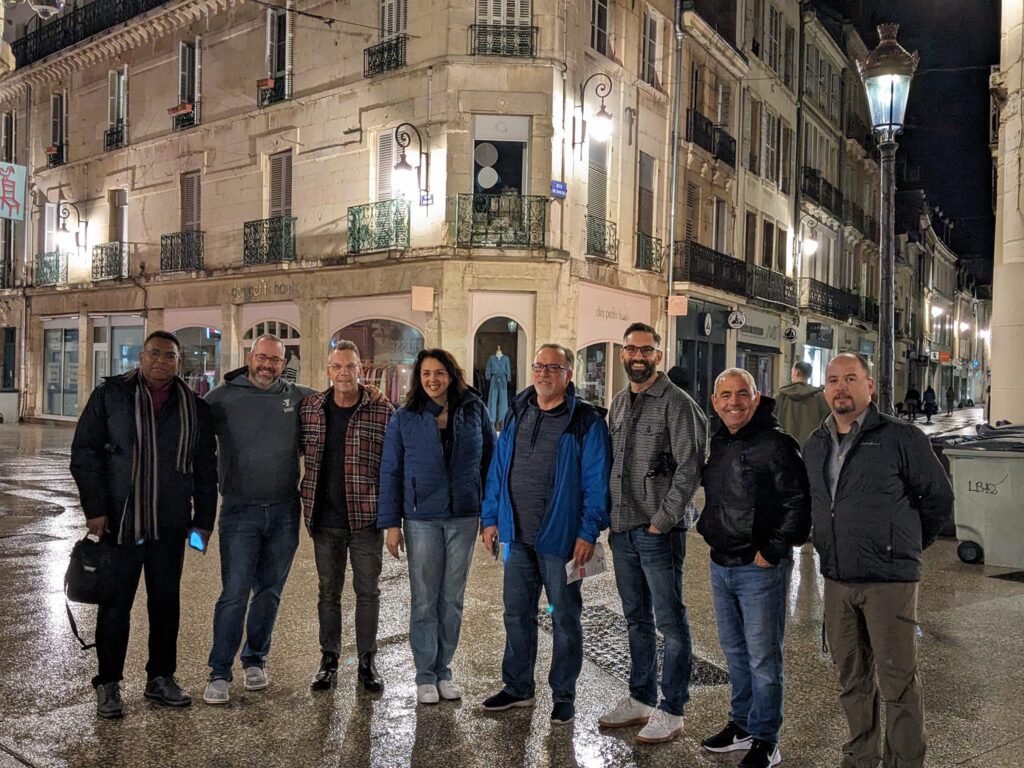
In the 1970’s, France experienced a revival that increased the number of Christians from one percent of the population to over thirty-five percent. The Lord was moving mightily, and the nation was changing. People were fleeing from strongholds and running to Christ! Within ten years the revival was silenced due to persecution. and Christians fled to other countries for their own safety. France again became a nation with Christians numbering less than one percent; they became what could be called a spiritual third world country.
France is facing another, very real kind of poverty: spiritual poverty.
But in the midst of all this, there was a remnant burning. There was a group of believers, filled with the Holy Spirit, that KNEW God had a plan for the nation of France, a plan to prosper the nation with His full gospel message. Despite facing a hyper-secularized and ungodly nation, the remnant kept holding onto the ancient hope of Jesus Christ.
In 1989, Pastor Michel Marvane and his wife Joelle moved to Dijon, France, to plant a church. They trusted in the Word of the Lord and began to seek His face for their city and nation. But God had plans to use Pastor Michel to reach the world. In 1996 the Lord sent him to Madagascar, where he established missionary work to reach that nation. That work spread and he, along with other partners in ministry, developed the Antioch Network, based out of Dijon, France, where he serves as the organization’s president. Since then, the Antioch Network has planted multiple churches, schools, and higher education institutions, as well as breathed new life into existing churches in France and throughout Africa. Each church has different goals and visions but one solid mission: expand the kingdom of God!
In the nation of France there are currently twenty-three churches in the Antioch Network. In 2010, Pastor Michel and his ministry partner, Pastor Phillipe Montuire, set a goal to have fifty new churches planted by 2037, and they are off to a great start! Since 2010, eight churches have been planted, four are currently in the beginning stages of planting, and ten churches are seeking to join the network.
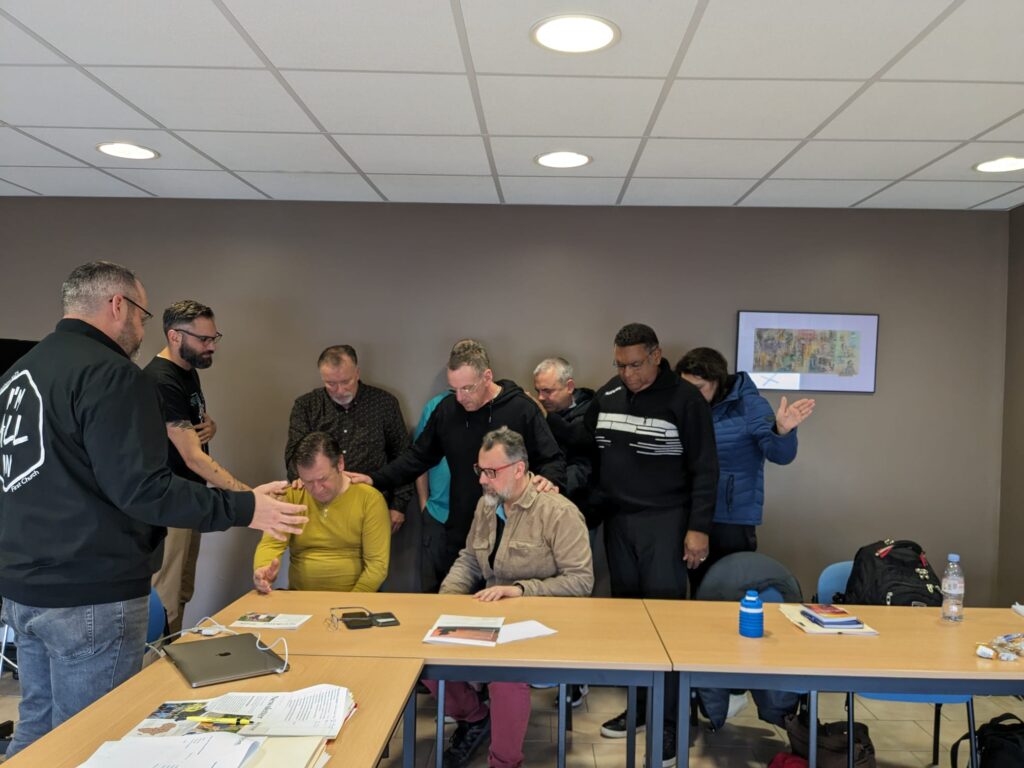
France is on a slow incline in spiritual growth; for the first time in a couple of decades the percentage of active Evangelical Christians has surpassed one percent of the population (surpassing 745,000 people). While we rejoice in that number, we also know that we have a LOT of work yet to do.
In March of 2024, the Global Missions Board had the pleasure and honor of traveling to Dijon, France, to meet the leadership of Antioch Network and the pastors of Le Tabernacle, the largest evangelical church in France. We got to hear the heart of their leadership and see the fruit of their labor. We attended church with them, preached in their churches, and prayed with the people there.
The Antioch Network has… breathed new life into existing churches in France and throughout Africa.
The Global Missions Board is delighted to share that the Antioch Network has chosen to come under the cover of Open Bible Churches as ambassadors of Global Missions. They saw what God has historically done in Open Bible and asked us to partner with them to expand the kingdom of God in France, Africa, and eventually across Europe!
Because we so fully believe in this mission, the Global Missions Board chose the Antioch Network to be the focal point of our 2025 MVP Global Harvest offering. We are asking Open Bible Churches in the U.S. to financially support our endeavor to expand the kingdom of God in France! In 2025, we are looking to raise $150,000 for the Antioch Network to help plant five new churches!
About the Author
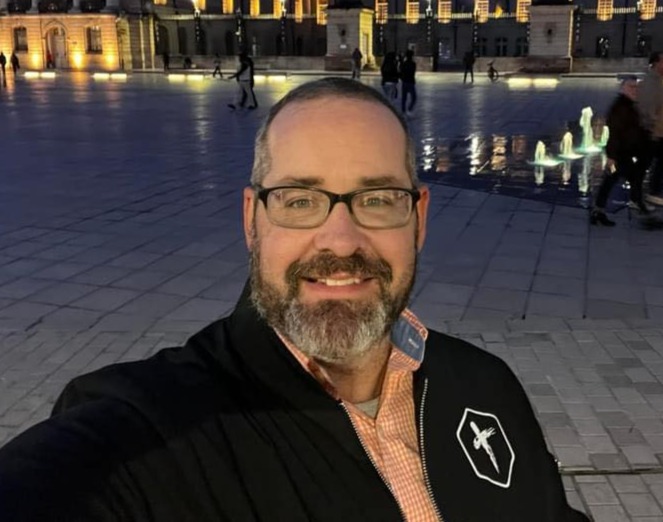
Mark Hornback
Mark Hornback has served as the lead pastor at First Church of the Open Bible of Ottumwa since June 2017. He has been part of the Global Missions Board since 2022 and has been actively involved in MOVE ministries since 2020. Mark is married to Jennifer, and together they have three kids: Alex, Lydia, and Henry.
Around the World
How Japan is Powerfully Engaging the Next Generation
Published
4 months agoon
July 1, 2024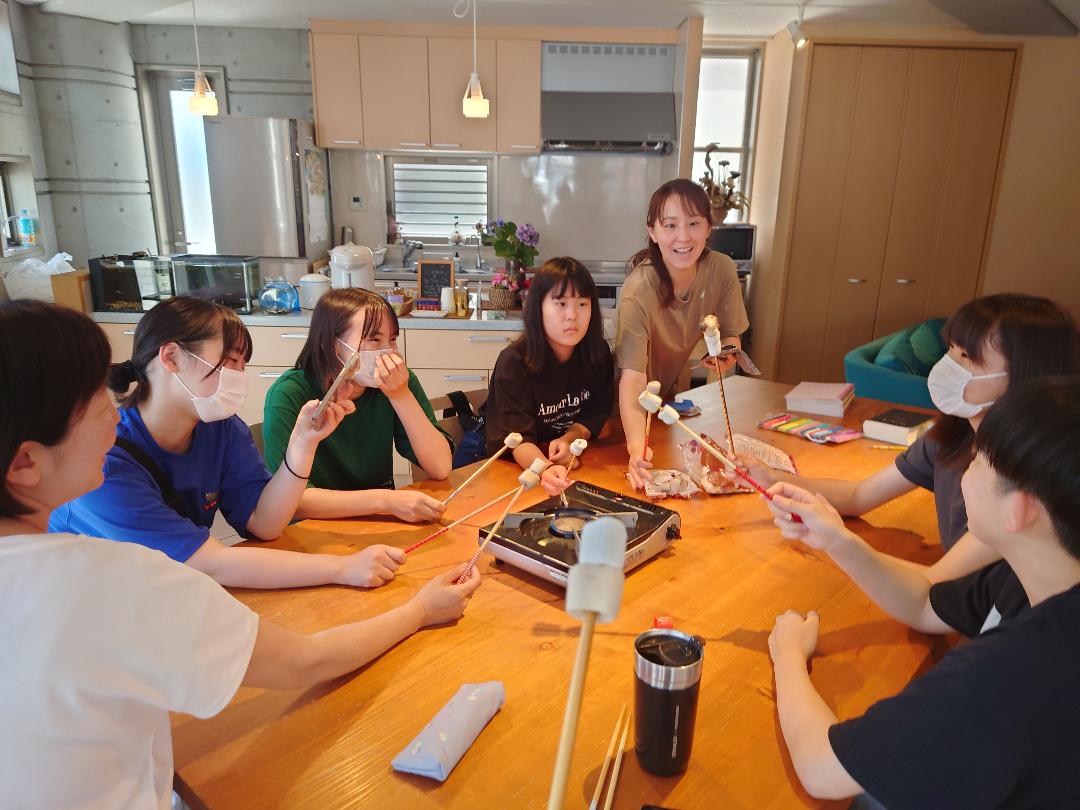
Discipling the next generation has been a value of Open Bible since its inception, and this commitment has been shown through a variety of Global Missions initiatives worldwide. From orphanages in India, to schools in Liberia, Sierra Leone, and Cambodia, to feeding kitchens throughout Latin America, to working with teenage inmates in Mexico, to youth camps in Ukraine and Uganda, Open Bible intentionally invests in children and youth. Across cultures, both traditional and culturally specific approaches are employed by Open Bible churches. The common theme in all these initiatives is to reach, disciple, and engage the next generation for the Kingdom of God!
Japan is one of several countries where exciting things are happening because of Next Gen investment. Despite Christians making up less than one percent of the population, Japan Open Bible Churches show profound commitment and creativity in reaching beyond the four walls of their churches to the next generation.
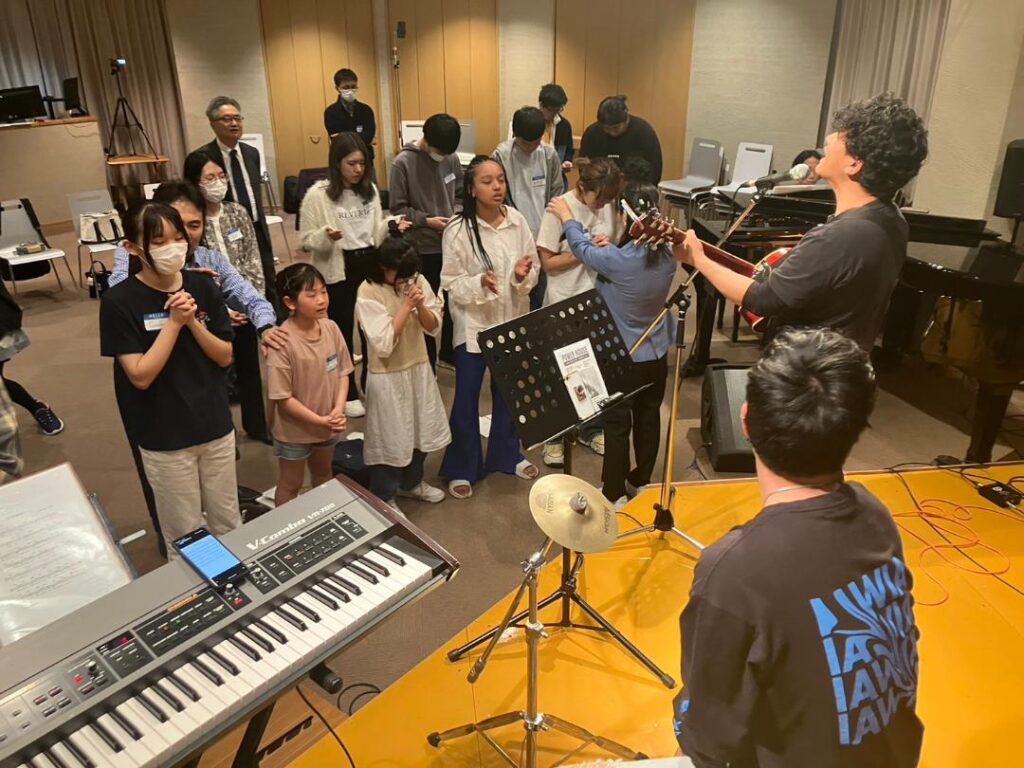
Japan churches have made it a priority to actively address social needs, enhancing their accessibility to the community. Machida Bible Church in the Tokyo area, pastored by Yutaka and Sakie Yoshinaga, hosts a monthly “Curry Day,” tackling the issue of children eating alone at night due to their parents’ work schedules. This event invites children to join church members for affordable curry rice in a warm, welcoming space. The aim of such initiatives is to present the church as a safe haven and to foster meaningful relationships with neighborhood families.
In a similar effort to connect with the community’s elementary-aged children, Machida Bible appeals to their sweet tooth! Once a month they transform the church into a “Sweet Cafe,” giving all attendees coupons to exchange for tasty treats. Church members then invite children to participate in other activities such as dance, playing musical instruments, sports, and games. The Sweet Cafe has proven to be a welcoming space for both children and mothers with young children.
Despite Christians making up less than one percent of the population, Japan Open Bible Churches show profound commitment and creativity in reaching beyond the four walls of their churches to the next generation.
In modern Japan, mastering English is more than just a practical skill; it is an effective way to engage students who might not typically associate with Christianity and to introduce them to Jesus. Church English classes use conventional language acquisition methods alongside unconventional ones, such as praise songs, dance, camps, and Christmas programs. Additionally, monthly student-parent gatherings feature illustrated Bible stories and related activities. These English classes resonate with Japanese youth, and Open Bible Japan welcomes native English-speaking missionaries to join them in this venture.
Laying the foundation for faith and discipleship is a priority, and Sunday School is where much of this happens in Japan’s Open Bible churches. However, it is the active participation in ministry – even for the younger generation – that solidifies that foundation. Therefore, elementary students regularly participate in Sunday worship teams, playing the drums, the guitar, or keyboards. Church youth groups also form “Mission Go” teams to support smaller churches in youth evangelism initiatives. These teams have helped run a basketball clinic for the community’s youth and assist in local children’s ministries.
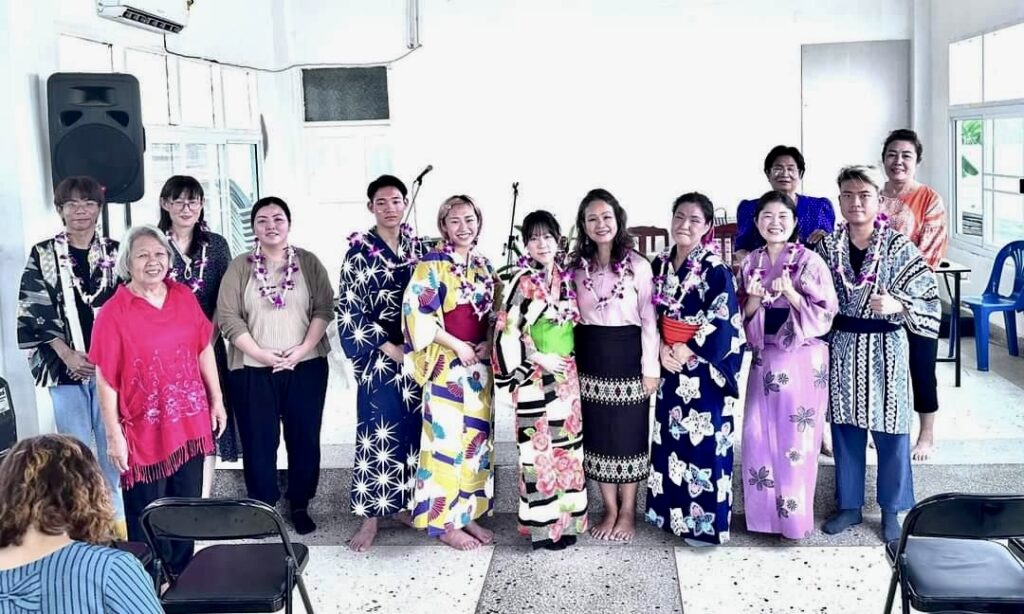
Partnering with Open Bible missionaries in Thailand, Japanese youth take part in mission trips. These cross-cultural experiences leave a profound impact on their lives. One teen noted, “I led the worship time and thought to myself, ‘I’m praising God in another country!’ I was deeply moved by how sincerely the people worshipped and my tears flowed uncontrollably.” Another participant remarked, “I could see the strong tie between Thai Buddhism and their landmarks. I realized the similarities with Japan and that we must pray that these places in both Thailand and Japan be dedicated to God rather than idols.” Japanese youth’s active participation on mission trips helps deepen their faith, encourage gift development, and give perspective on how to effectively pray for other cultures. Japan’s ministry to and through its children is a powerful testimony to what can happen when we entrust the gospel to the next generation.
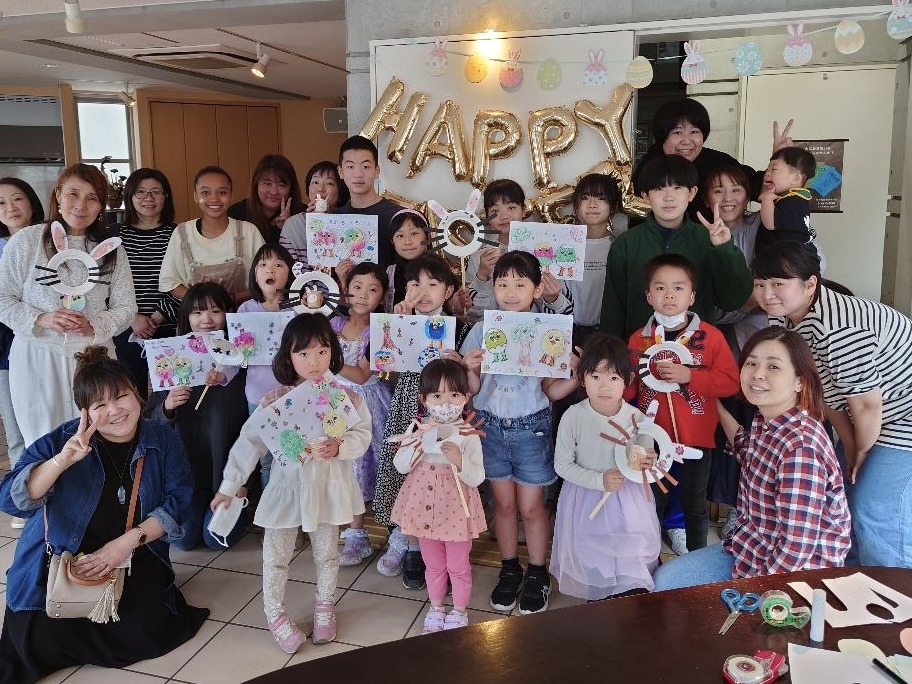
For some, ministry to children and youth is seen as secondary. Global Missions’ dedication to fostering a legacy of faith to the next generation is more than commendable; it is biblical. Jesus said, “Let the little children come to me, and do not hinder them, for the kingdom of heaven belongs to such as these” (Matt. 19:14 NIV). Thank you for your support of Open Bible churches worldwide through the investment of prayer, time, energy, and finance as we seek to reach, disciple, and engage the next generation for the Kingdom of God!
About the Author
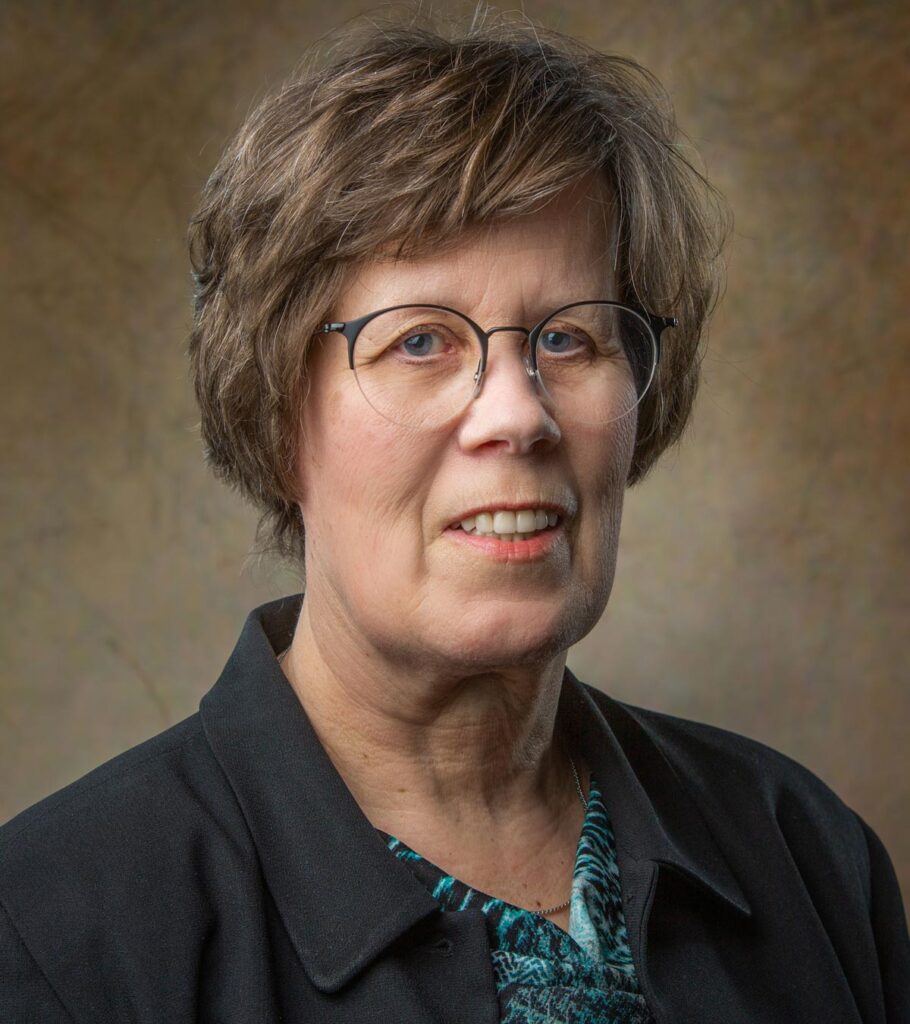
Tammy Swailes
Tammy Swailes is passionate about cross-cultural Christian education, so working with INSTE Global Bible College to disciple and equip leaders throughout Europe and beyond is a great fit! Tammy has lived in Europe since 1999 – first in Hungary and now Ukraine. Before that, she was in Japan as well as Spokane, Washington. She now serves as INSTE regional director in Europe, assisting INSTE programs in five languages. Tammy has her undergraduate degrees in both Missions and Christian Education, and a MA in Intercultural Studies. Photography, good coffee, multi-cultural experiences, and the family’s Yorkie are some of Tammy’s favorite things.
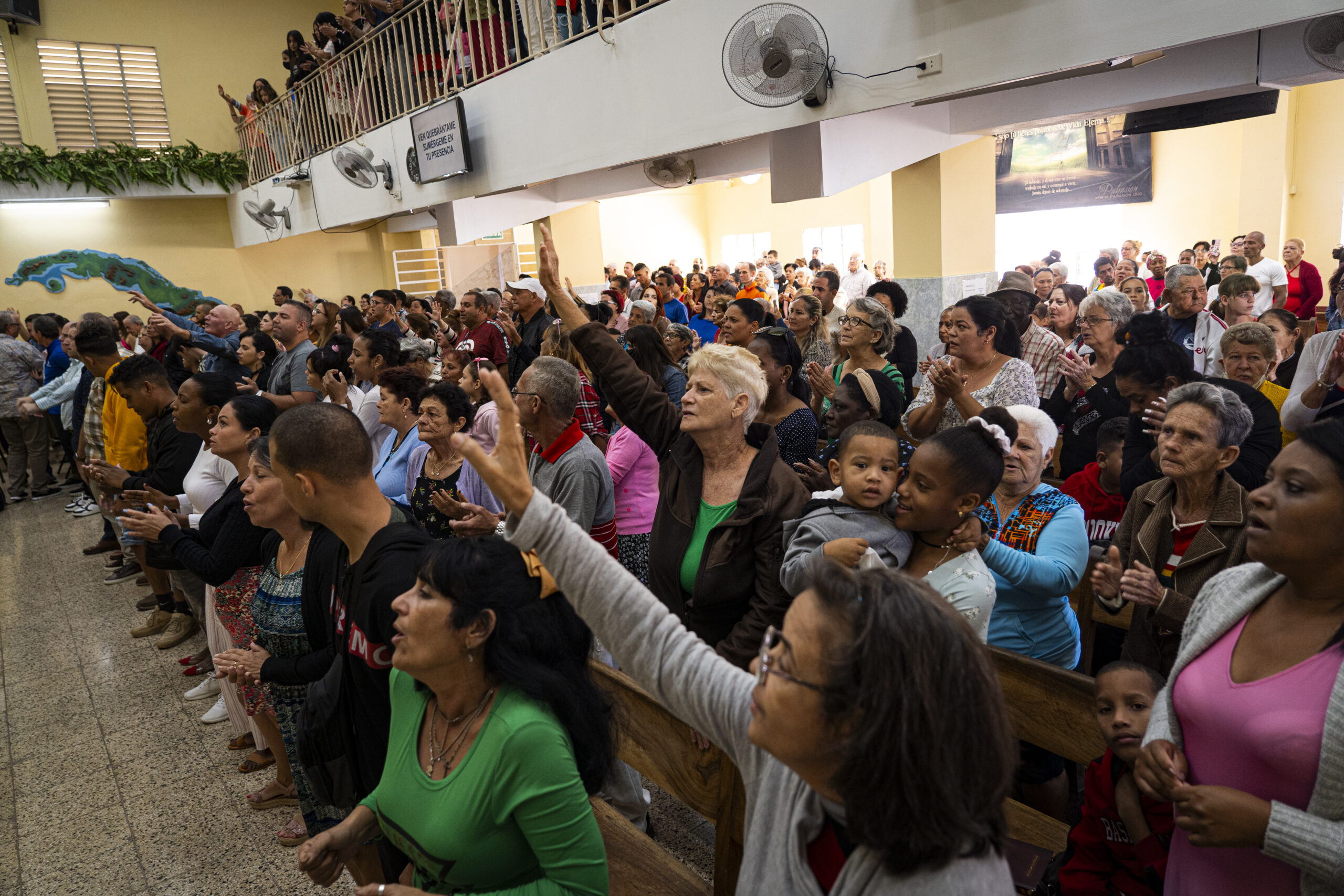
Attend one worship service at Pastor David Moreno’s Open Bible church in Guanajay and you’ll quickly find there are no limitations or “embargoes” on God’s presence in Cuba. Rich worship, inspirational teaching, and the robust moving of the Holy Spirit are enduring hallmarks of Pastor David’s church, Templo Evangelico de la Biblia Abierta. This flagship church reflects what God is doing in and through Open Bible Churches across the country of Cuba.
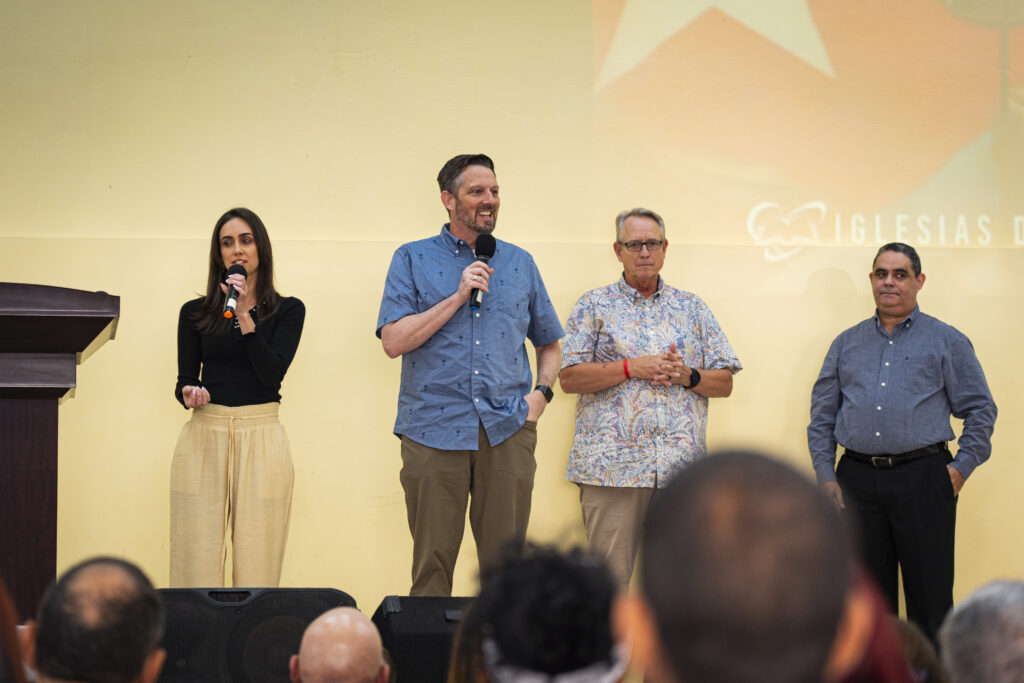
The spiritual health of this church belies the fragility of life in Cuba. Scarcity of food and medication, heavy fuel rationing, and steep inflation ─ over 30% last year ─ define their grave economic reality. These conditions have already pushed hundreds of thousands of Cubans to leave their homeland in a daring quest for a better life.
Open Bible’s 149 Cuban churches are much more than houses of worship. Beyond offering crucial salvation and discipleship, they are community centers, helping to fill the gaps for the people they serve. Daily they provide miraculously obtained food and other essential items so desperately needed by the Cuban people.
The spiritual health of this church belies the fragility of life in Cuba.
As the director of Mission Esperanza, over the past year I have had the privilege of partnering with Pastor David, who also serves as the president of Open Bible in Cuba, and his national leadership team. Mission Esperanza’s call is to serve and encourage the Cuban people and churches by facilitating pastoral leadership conferences, assisting in the construction of churches, and shipping essential items from the U.S.
In February 2024, I led a group of nine Open Bible pastors and leaders on a vision trip to Cuba. I was grateful that Open Bible President Michael Nortune was able to be part of that group. Pastor David ferried us around for three days, visiting several Cuban Open Bible churches and pastors and helping our group to learn firsthand of the hardships and opportunities in Cuba. A real highlight of the trip was hearing President Nortune preach in Pastor David’s church that Sunday morning. He delivered a Holy Spirit inspired message of encouragement and issued a biblical challenge that was enthusiastically received in the crowded sanctuary.
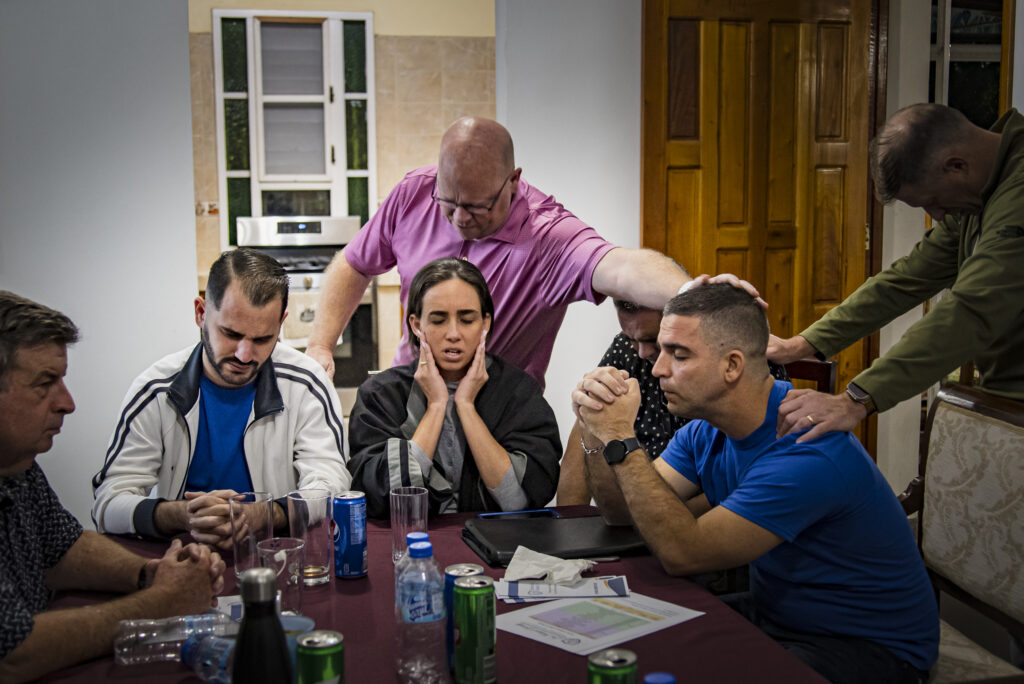
Previously, in October 2023, Mission Esperanza held our first Pastors Conference with 350 pastors and church leaders in attendance. Pastor Aaron Keller (Des Moines, IA) joined me in hosting our conference speaking team of Pastor Raul Escalante (Sunrise, FL), Pastor Pablo Urra (Miami, FL), and Pastors Marcelo and Bernarda Rodriguez (Grecia, Costa Rica). The Lord moved powerfully through our gifted speakers, each one covering ministry subjects particularly relevant to Cuban churches and the failing Cuban society. That our speakers were all fluent in Spanish and understood the Latin culture multiplied their ministry effectiveness. Many times, sessions concluded with prayer at the altar during our three-day conference. I was blessed watching Mission Esperanza’s team move across the sanctuary praying with our Cuban brothers and sisters as they poured out their praise and ardent petitions to our Heavenly Father. Time paused as the Holy Spirit filled the hearts of His people. I have received many reports of the blessing of last October’s conference, praise the Lord! Mission Esperanza is looking forward to our next conference scheduled for May 2024, where we anticipate another 250 pastors and leaders from a different region in Cuba.
Certainly, Cuba needs our prayers and support. Please prayerfully consider supporting the people and churches in Cuba by giving through Global Missions’ Mission Venture Plan (MVP). There are two ways you can bless Cuba under the MVP category of Humanitarian Aid. You can give a one-time amount to the “Cuba Aid” fund, or you can give monthly by selecting “Cuba Adopt-A-Church.” This program is a $30 to $50 monthly commitment, which will support a local pastor and church.
The Church is growing rapidly in Cuba. People are coming to Christ across the country, new churches are being planted every year, disciples are being made, and 350 students are being trained and equipped for ministry. Recently, while discussing the Lord’s work in Cuba, President Nortune reminded me, “The story continues, and we all can be part of it.”
The needs are great, but just as there are no spiritual embargoes in Cuba, there are no limitations in Christ!
*Credit for all photographs goes to Tim Wedhe.
About the Author

David Bethany
David Bethany is a follower of Jesus Christ. He is blessed by his wife, Carla, and is dad to four adult children and “papa” to eight energetic grandchildren. David is the Director of Mission Esperanza and has been the Construction Director for MOVE Ministries for the past thirty-one years. He owns a construction consulting firm in Los Angeles and attends Village Church.


